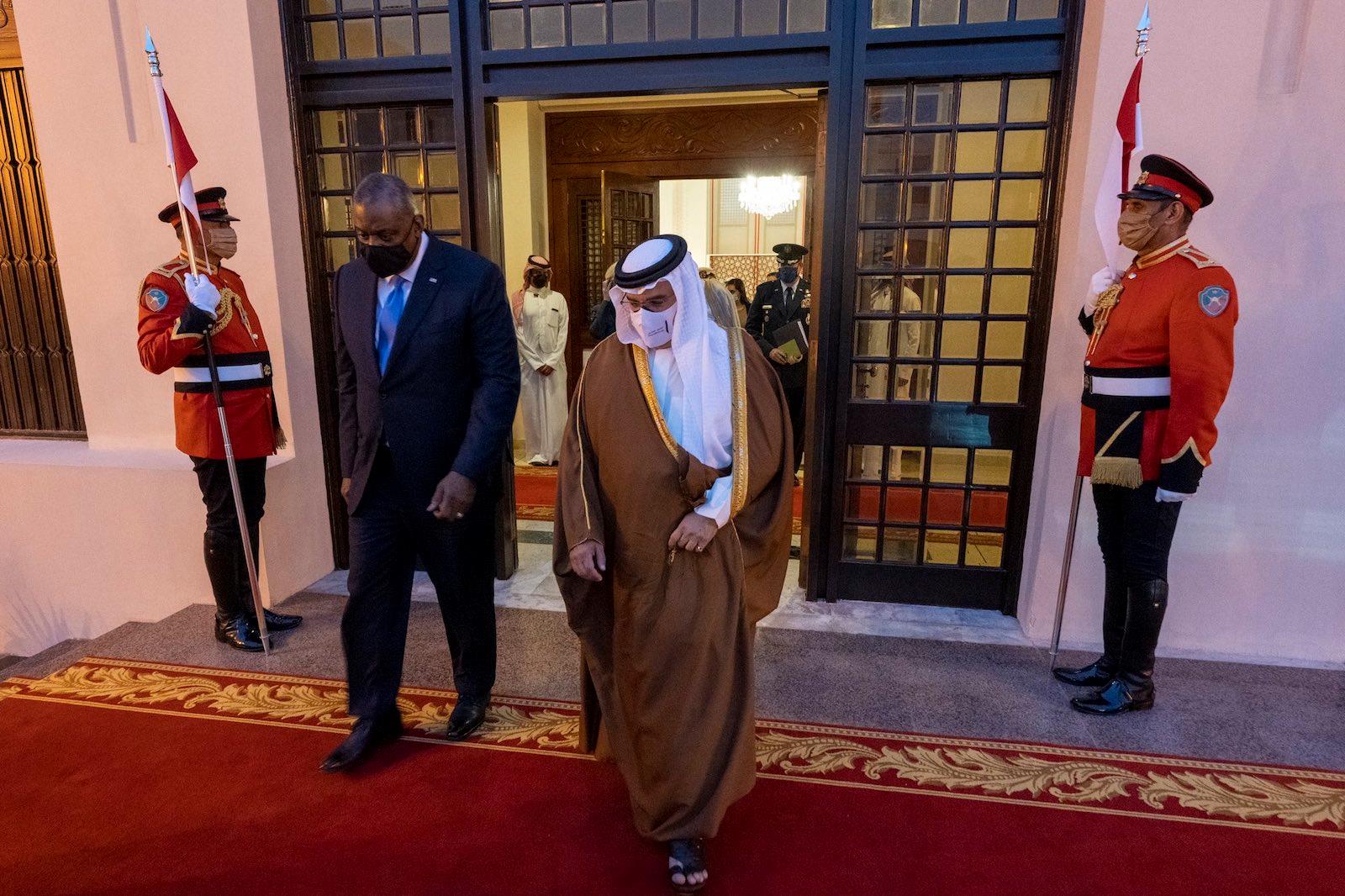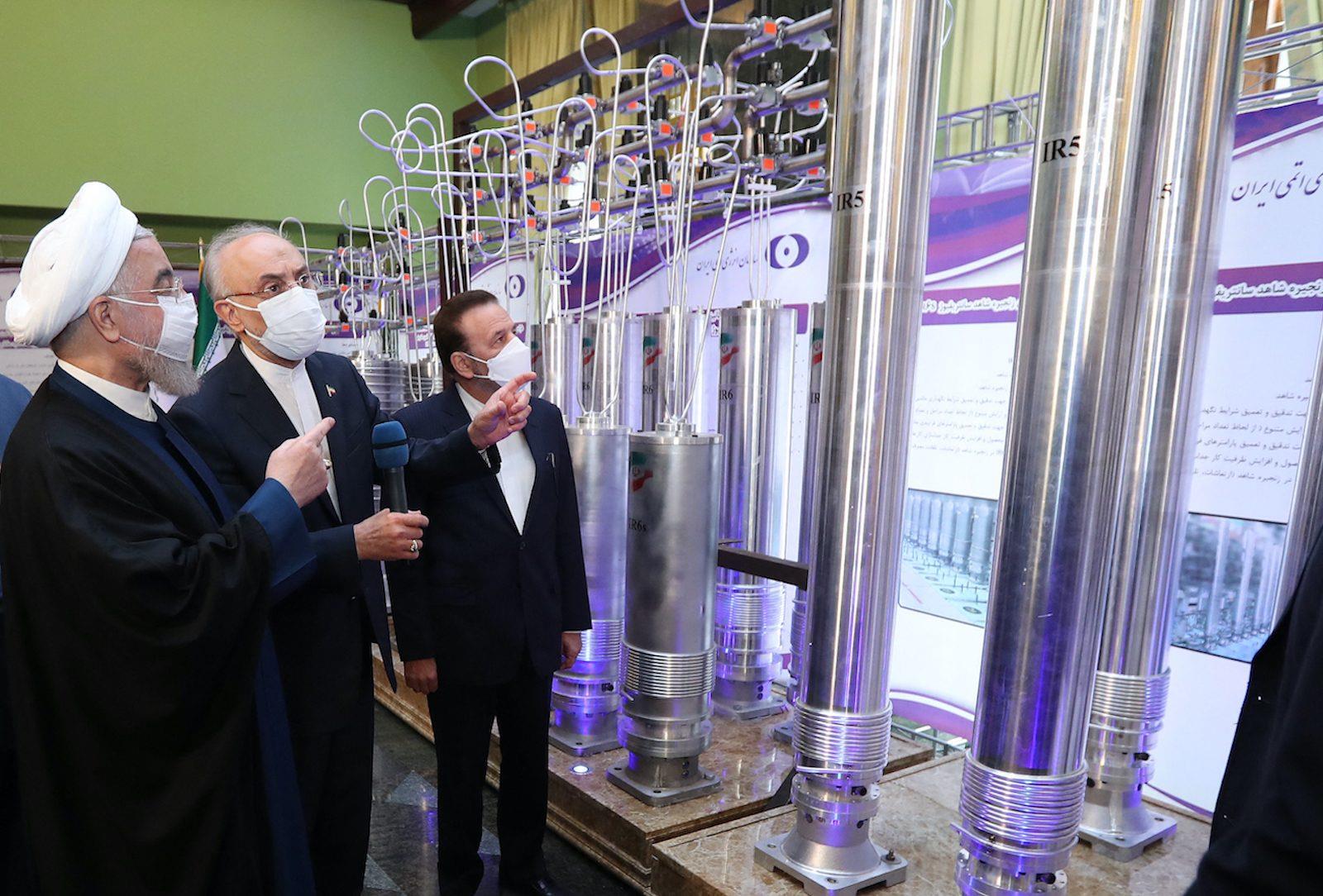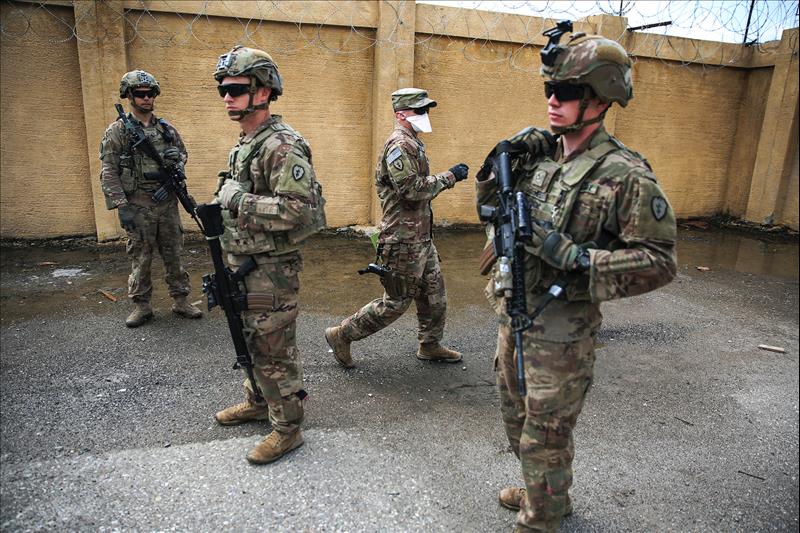
US can't easily abandon the Middle East
(MENAFN- Asia Times) At a regional security meeting in Bahrain over the weekend, US Defense Secretary Lloyd Austin tried emphatically to persuade Middle Eastern allies that the US was just as committed as ever to regional security.
“Let's be clear,” he declared.“America's commitment to security in the Middle East is strong and sure.”
Shadowed by the chaotic withdrawal from Afghanistan, by reductions in US military force numbers in the region and by persistent talk in Washington about a strategic“pivot to Asia,” it was a tough sell.
Farhad Alaaldin, chairman of the Iraq Advisory Council, a Baghdad-based research institute, expressed the general concern:“There are a lot of worries here. Your partners on the scene are worried, and some of them are starting to run for cover.”
Austin acknowledged“a lot of angst that I hear,” – but insisted,“You are important to us.”
It is unsurprising that Middle Eastern states should wonder whether, as the United States focuses sharply on new 21st Century priorities, it won't back away from security relationships rooted in the Cold War era.
President Joe Biden has, after all, repeatedly laid out his top foreign priorities:
- Deal with the military“challenge” from China in East Asia, and
- Prepare for possible conflict with Russia over Ukraine.
Concretely, the Pentagon has taken steps to reduce its American military footprint in the Persian Gulf and the Middle East in order to shift attention and resources to Asia.
But it is becoming clear that the US, after a two-decade period of armed intervention in the region, has left behind a host of persistent problems. This litany of failure may have a major geopolitical cost: a vacuum left for perceived enemies to fill.
“Russia already has a strong military presence in the Middle East, and China is increasing its economic expansion through the Belt and Road Initiative,” Megan A. Stewart, a professor at American University School of International Service, wrote for Washington's Middle East Institute.
“Ultimately, a trust vacuum could lead to greater influence for these global powers — at the expense of the US.”

US Secretary of Defense Lloyd Austin meeting with Crown Prince Salman bin Hamad in Bahrain. Photo: Twitter
Resolving nuclear weapons issues with Iran is one major unfulfilled US goal. A multinational meeting with Iran, to include China, Russia, France, Great Britain and Germany, is scheduled for November 29 in Geneva.
It aims to revive a 2015 agreement to curb Iran's nuclear program in return for lifting economic sanctions. Biden's predecessor Donald Trump pulled out of the accord in 2018.
Biden is somehow indicating that if a new deal is reached, the US will stand by its commitment. How he would guarantee that is a mystery, though: The 2015 agreement was simply signed by then-president Barack Obama and so was easily undone by Trump.
Unless Biden could get the US Senate to endorse a new agreement as a treaty it too would be subject to the impulses of the next president.
In any event, Biden's team has floated a counter-time-buying plan: Iran should freeze its nuclear program where it is now – in recent months Tehran has increased its stockpile of weapons-grade uranium – in return for some sanctions relief and further talks.
Publicly, Iran is taking a hard line. Sanctions should be lifted, period, Teheran says. A week before the Manama summit, Ali Bagheri Kani, Iran's chief nuclear negotiator, declined to refer to the Vienna talks as negotiations at all.
He said,“We have no such thing as nuclear negotiations.” Rather, the talks are“negotiations to remove unlawful and inhuman sanctions.”

Ali Bagheri Kani. Photo: AL-Monitor
Iran is not the only worry about the near future of a Middle East downgraded by the Americans.
Take Afghanistan. Biden justified his withdrawal by citing the ability of the Afghan army to crush terror groups there, especially the Islamic State as well as al-Qaeda. Despite US training and military aid over two decades, it didn't happen. And it seems unlikely to happen under terrorist-friendly Taliban rulers.
Less than three months after the US pullout, terrorist group revival is well underway, according to Colin Kahl, the US undersecretary of defense for policy. In late October, he told a US Senate committee that the Islamic State, a terrorist network the US tried to defeat not only in Afghanistan but also in Syria and Iraq, could be prepared to attack the US within six months.
“We actually are fairly certain they have the intention to do so. It's precisely that threat that we need to remain vigilant [toward], and disrupt,” Kahl said.
As for Iraq, Pentagon officials warn that the Iraqi military – which, like the Afghan army, benefited from years of US training, is unable to take on the Islamic State. Last month, the Pentagon's Defense Department Inspector General Sean O'Donnell wrote that the Iraqi army demonstrates:
- “Poor operational security,”
- “A lack of reliable information on operations” against the Islamic States,
- “Complacency” and
- “Poor tactical control and coordination of strike assets.”
This warning came on the eve of the announcement that US military operations in Iraq will end by the new year, leaving the issue to the unsteady Iraqi force.
Then there's Syria. A questioner at the Manama meeting pointed out that, in October, militias backed by Iran launched drone attacks on American troops in the country and the US had failed to respond. Austin answered with canned bluster but without specifics.“The US maintains the right to defend itself,” he asserted,“at the time and place of our choosing.”
The pivot to Asia is also leaving behind a budding dispute between the Biden administration and Israel, the oldest US ally in the Middle East.
In Manama, disagreement between Israeli National Security Advisor Eval Hulata and Biden's top Middle East advisor Brett McGurk broke out over the minimum requirement needed to strike a nuclear deal with Iran.
Israel wants to force Iraq to stop short of having the wherewithal to build a nuclear weapon, so-called breakout capability. Hulata emphasized Israel's bellicose determination to stop it.“Israel will defend itself against Iran if it needs to and we are making the preparations for this,” he said.
McGurk focused on the preference for diplomacy, noting that sanctions without negotiations had not stopped Iran from increasing its nuclear capabilities.
In fact, he intimated, the Trump administration's hard line had prompted Tehran to step up its development.“We have no illusions that they suddenly change their orientation, or that the regime will collapse, under sanctions,” McGurk said.

Then-Iranian President Hassan Rouhani (L) and head of the Atomic Energy Organization of Iran Ali Akbar Salehi (2nd R) visit the Nuclear Technology exhibition on the 11th anniversary of National Nuclear Technology Day in Tehran, Iran on April 10, 2021. Iranian Presidency/Handout / Anadolu Agency via AFP
Hulata countered testily:“Iran won't make concessions only because we ask them nicely. They don't work like that.”
Last month, Israel's army chief of staff, Lieutenant General Aviv Kochavi, placed a concrete face on the Israeli position. The Israeli military was“speeding up the operational plans and readiness for dealing with Iran and the nuclear military threat,” he said.
It was a reference to the decision by Prime Minister Naftali Bennett to authorize funding to practice and plan attacks. Israeli officials say they have bunker-busting bombs to destroy fortified Iranian nuclear facilities.
In a volatile nutshell, it looks like leaving the troublesome Middle East behind will be easier said than done for Biden.

Legal Disclaimer:
MENAFN provides the
information “as is” without warranty of any kind. We do not accept
any responsibility or liability for the accuracy, content, images,
videos, licenses, completeness, legality, or reliability of the information
contained in this article. If you have any complaints or copyright
issues related to this article, kindly contact the provider above.
















Comments
No comment